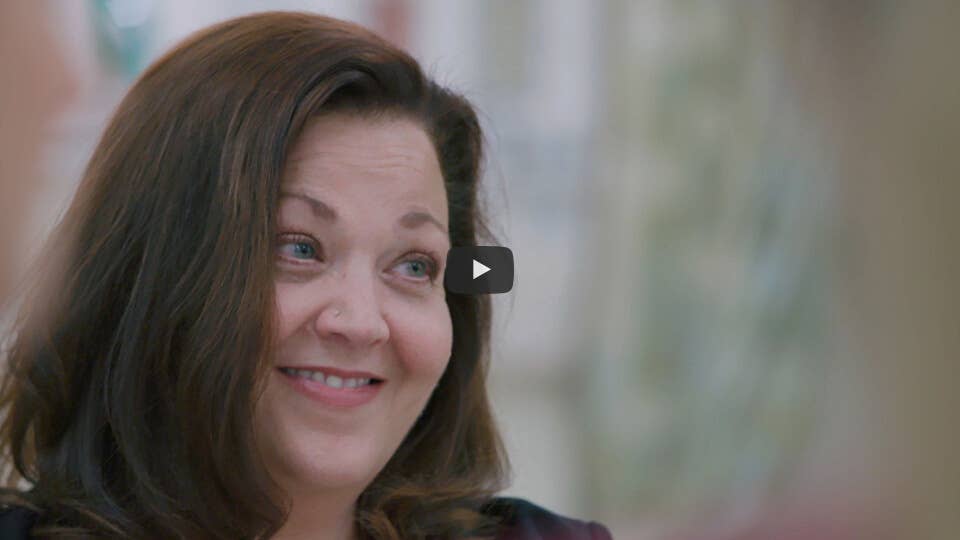Shining a Light on the Darkest of Problems: A Forensic Nurse Fights Human Trafficking
Laurie Charles, clinical assistant professor at Texas A&M University (TAMU) has one of the most difficult but important jobs you can imagine: She teaches healthcare professionals how to identify children who are being sexually abused.
She didn’t set her sights on this work when she became a registered nurse nearly 30 years ago. It wasn’t until she was several years into her career, when she thought she’d seen just about everything as an emergency room nurse in a San Antonio children’s hospital, she witnessed a dire problem and couldn’t look away from it.
A little girl who had been in her care walked out of the hospital without Charles and her team realizing the girl was a human trafficking victim. Once they learned the girl’s mother had sold her to her perpetrators, it changed everything for Charles.
“That took my breath away and brought tears to my eyes,” said Charles. “It was soul-crushing for me.”
In that soul-crushing moment Charles decided to educate herself more about this crime, and dedicate her career to changing the stories of human trafficking victims. She worked with her hospital medical director, attended conferences and meetings with law enforcement, child protective services, federal and state prosecutors, and nonprofit organizations.
In addition, though it had been twenty years since she received her RN diploma, she went back to school to earn her BSN (2014) and MSN (2015) degrees from Western Governors University. Her efforts led her to become a forensic nurse consultant and educator in TAMU’s forensic healthcare program.
Now, Charles is a leader and advocate in the state on how to recognize, investigate and treat victims of these hard-to-identify crimes. She passes on many stories, from experience, about collecting evidence from kids who have been places no one wants to believe exist.
“When people say: ‘It doesn’t happen here,’ they’re wrong,” said Charles. “People do terrible things to other people. I live in that world. Once you realize that, you can’t ever pretend again that the world is a rosy place.”
Human trafficking really hits home in the United States. Of 23,500 runaways reported to The National Center for Missing and Exploited Children last year, one in seven were likely victims of child sex trafficking. And medical professionals have the opportunity to be the first line of defense by identifying them.
“Our hospital’s work reflects the growing understanding that health care professionals can intervene and potentially rescue human trafficking victims,” Charles wrote in an article for The Conversation last year, explaining that asking non-leading questions and using trauma-informed techniques can create an environment where victims feel safe to disclose the abuse they experienced.
“Those who’ve been trafficked have often lost trust in humanity. They don’t know who they can trust, so they might not talk to you,” said Charles. “One child told me—and it stopped me in my tracks—she said it’s a trauma to your soul that never goes away.”
In the meantime, she keeps sharing the stories, teaching the questions to ask, and showing her students and colleagues the “care” part of their healthcare roles.
“I had a girl one time, years ago, and asked her: ‘If I send you home, are you going to hurt yourself?’” Charles recalled.
“’Nobody will care if I do,’” said the girl.
“’You’re wrong,’” Charles replied.
“’No, I’m not,’” said the girl.
“‘You are,’ I said. ‘Because I won’t be okay.’ And she just looked at me. Weeks later, she comes back in my hospital. She says: ‘I really hate you.’ And I said, ‘You can hate me all you want. But you’re still here.’ And she smiled this beautiful little cocky obnoxious teen-aged smile. We both knew at that moment that it was important that one person cared about her. And it was me.”

Leading the way.
Laurie has put her master's degree in nursing leadership to work helping healthcare providers to recognize and intervene in cases of human trafficking.
Interested in a similar path? Check out Health and Nursing degrees at WGU.
More #SheDidThat
 Laurie Charles, a forensic nurse and expert in sexual assault and human trafficking.
Laurie Charles, a forensic nurse and expert in sexual assault and human trafficking.
Refer a friend to WGU.
Know someone who’s defying the odds to achieve their career dreams? A degree from WGU may be just what they're looking for.
WGU endeavors to inspire personal achievement in education and leadership. We know that education is a catalyst for bettering the lives of individuals, families and communities.
More powerful stories.

Sarah Aronack helped save an Alabama hospital.
Soon after becoming the Director of Nursing at a local hospital, Sarah found out that she had 30 days to change the hospital’s policies or risk losing key Medicare and Medicaid funding, a move that would force the hospital to close. That enormous task became Sarah’s WGU capstone project.

Success in the Special Ed Classroom
"There is nothing more exhilarating than being able to set a goal for yourself. And realize that you have successfully completed it."
Julie Young shares her story about how she overcame her own disability to help her non-typical students.

GRAD STORY: Competitive runner to running HR
From her time as a college-level track and field athlete to the challenges of earning a graduate degree as a wife, mother, and working professional, Connie Washington has always relied on her competitive mindset to defy expectations and achieve success on her own terms.
Four colleges, one university.
All of our degree programs are carefully chosen with employment and success in mind. Our special model of online-learning is designed for the working adult, and our commitment to keep costs down means better ROI for our graduates.









